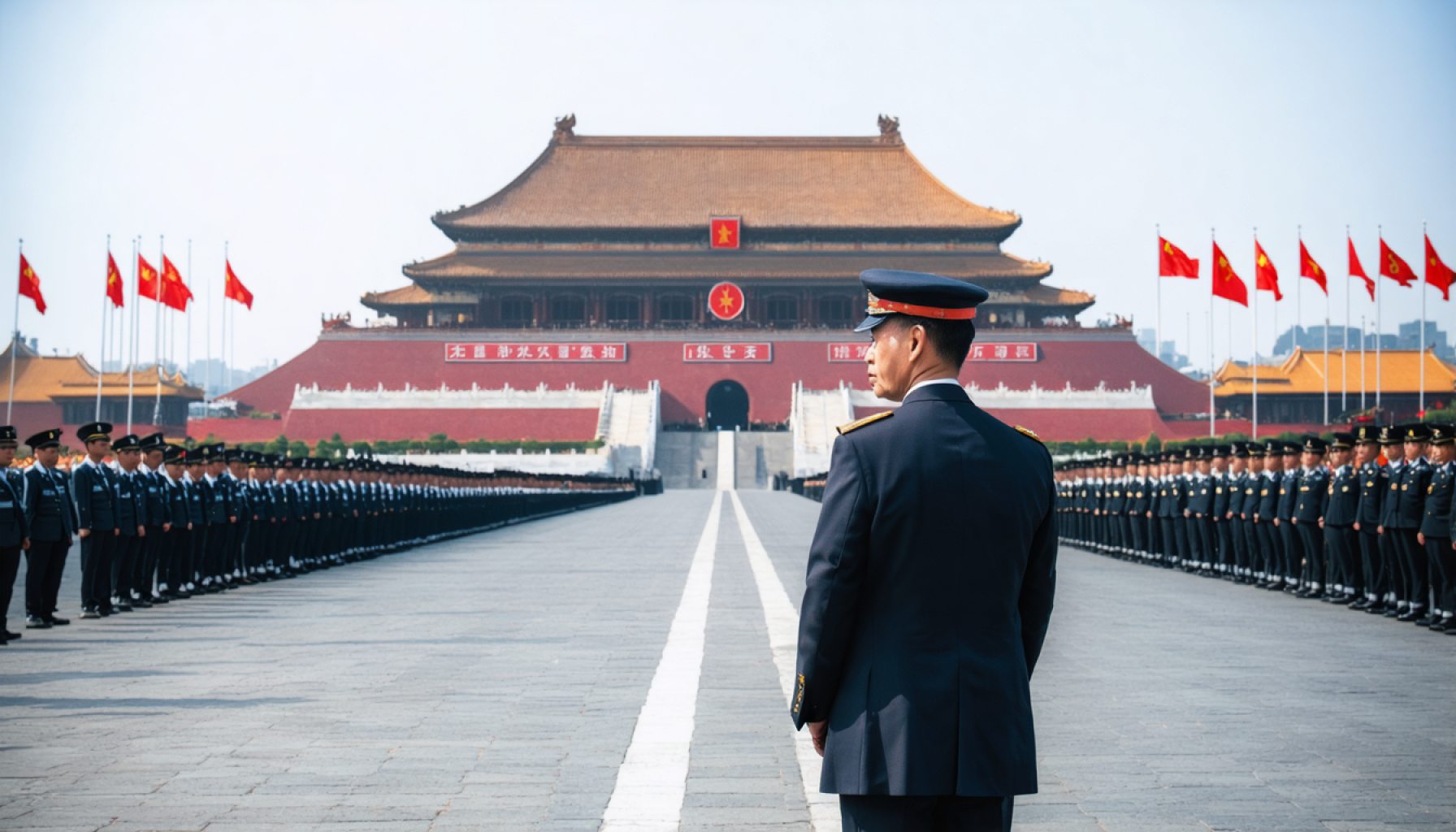- The investigation of Jiang Chaoliang, a notable figure in Chinese politics, underscores a significant commitment to discipline and reform within the country.
- Jiang faces serious disciplinary charges, reflecting China’s determination to eradicate corruption at all levels of government.
- The inquiry is led by the Central Commission for Discipline Inspection, emphasizing the enforcement of accountability among high-ranking officials.
- Jiang’s political career includes prominent roles such as Governor of Jilin Province and Party Secretary of Hubei, illustrating his deep entrenchment in China’s political landscape.
- This case highlights the broader narrative of governance reform and the volatile nature of Chinese political life, emphasizing transparency and integrity.
- The investigation has sparked widespread discussion, reinforcing the global and domestic understanding that no one is immune to scrutiny.
- The situation serves as a poignant reminder of the ongoing battle against corruption, aiming to foster a future devoid of such challenges.
A seismic tremor ripples through China’s political realm as Jiang Chaoliang, a prominent figure, faces intense scrutiny. Under the watchful eyes of the Central Commission for Discipline Inspection, Jiang, a member of the Standing Committee and deputy director of the Agricultural and Rural Affairs Committee of the National People’s Congress, stands accused of serious disciplinary violations.
Born in the late summer of 1957, Jiang’s political journey has been marked by significant leadership roles, including Governor of Jilin Province and Party Secretary of Hubei. His career progression mirrors a path well-traveled by China’s political elite. However, the current inquiry pierces the surface, revealing the government’s relentless pursuit of integrity within its ranks.
Such investigations are not merely administrative reviews; they are intricate processes that suggest a broader drama unfolds behind the opulent facades of state offices. China’s commitment to rooting out corruption remains undeterred, illustrating a deeper narrative of governance and reform.
The very nature of this investigation demands attention, sparking discussions not just within political corridors but also across public spheres. Here, the message is clear: no position, however influential, is beyond the reach of accountability, painting a vivid picture of the Chinese government’s steadfast resolve to uphold discipline.
As Jiang’s case unravels, its implications remind citizens and global onlookers alike of the dynamic and sometimes volatile nature of political life in China. The unfolding story serves as a crucial lesson in the pursuit of transparency, where vigilance and reform dance an unending duet, striving to shape a future free from the shackles of corruption.
Inside the High-Stakes World of China’s Political Integrity Campaigns
Understanding China’s Political Scrutiny and Jiang Chaoliang’s Case
China’s political landscape frequently undergoes seismic shifts whenever a high-ranking official like Jiang Chaoliang faces scrutiny. This investigation signals more than just disciplinary action; it’s part of a larger narrative of China’s ongoing anti-corruption campaign led by the Central Commission for Discipline Inspection (CCDI).
How-To: Navigating China’s Political Climate
1. Stay Informed: Understanding China’s political landscape requires keeping up with local and international news. Subscribe to credible sources for updates.
2. Understand the Systems: Familiarize yourself with the functions of the CCDI and other key governmental bodies like the National People’s Congress which influence China’s governance strategies.
3. Learn the Language: Grasping the basic political terminology in Mandarin can provide better insights into Chinese politics and policy discussions.
Real-World Implications of Political Investigations
– Market Reactions: Such political tremors can cause fluctuations in the Chinese and global markets. Investors need to monitor these developments closely to anticipate potential impacts on market trends.
– International Relations: These investigations can also affect China’s diplomatic relations, as other nations may react to perceived instability or strength in China’s governance.
Market Forecasts & Industry Trends
The anti-corruption measures in China are expected to continue, influencing a trend towards increased transparency and supervision across industries. This can lead to safer investment climates but may also mean tighter regulations and compliance demands for businesses operating in China.
Controversies & Limitations
The Chinese government’s anti-corruption campaign, while ensuring accountability, often faces criticism for its opaque processes and potential for being used as a political tool. Understanding these dynamics is crucial for experts analyzing China’s political environment.
Insights & Predictions
China’s anti-corruption crusade will likely persist, aiming to consolidate President Xi Jinping’s power and maintain the Communist Party’s image. This focus on discipline suggests that internal monitoring and reforms will intensify, affecting both governmental and corporate sectors.
Recommendations for Following Chinese Political Developments
– Diverse Sources: Rely on multiple news outlets, including international perspectives, to gain a well-rounded understanding of China’s political climate.
– Sector Analysis: For investors and business professionals, analyze how political investigations might hint at shifts in policy or changes in regulatory environments.
Quick Tips:
– Use platforms like LinkedIn to follow thought leaders on China.
– Leverage automated alerts on search engines for real-time updates on Chinese politics.
– Explore governmental reports and white papers for in-depth analysis.
For more information on China’s government structure and policies, visit the China.org.cn.
